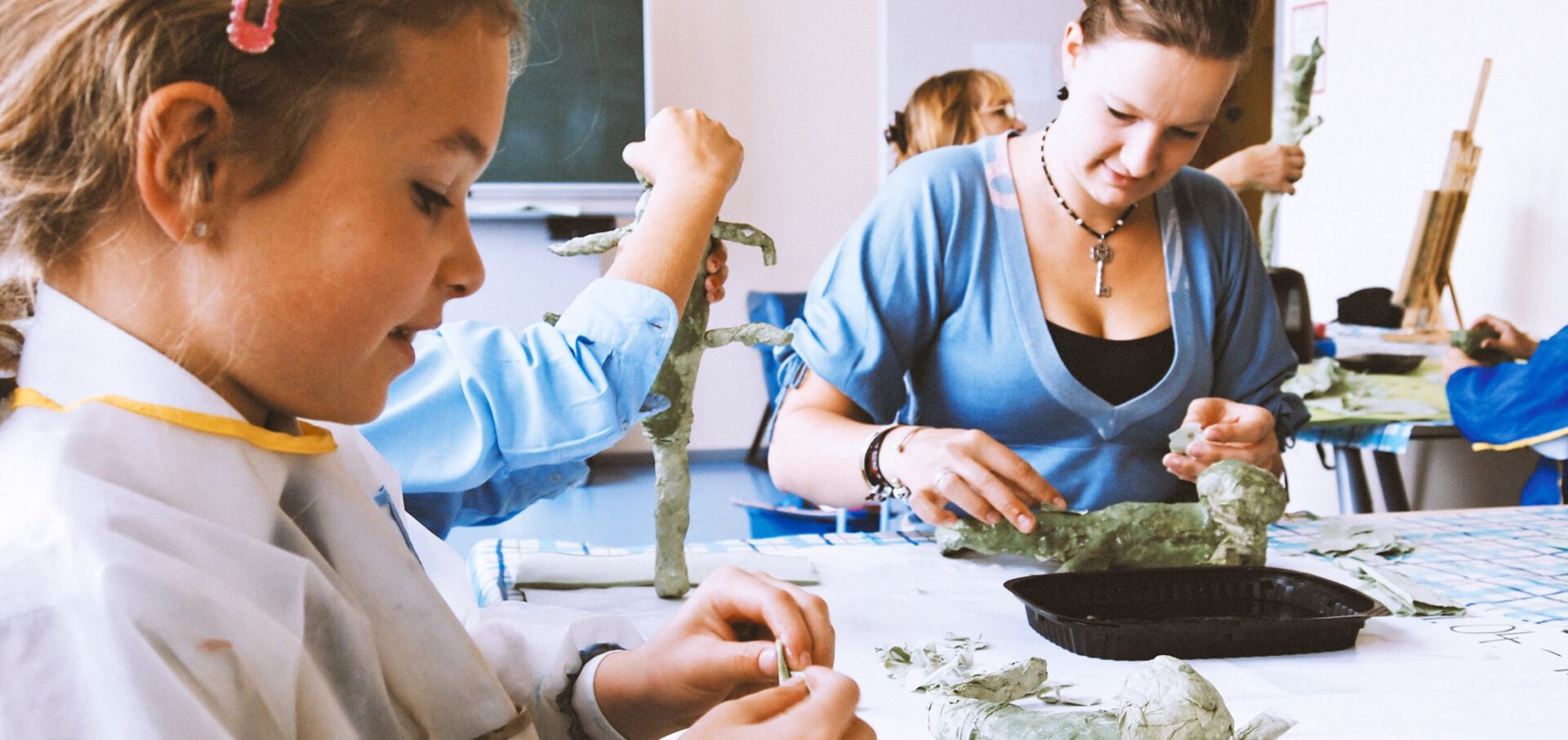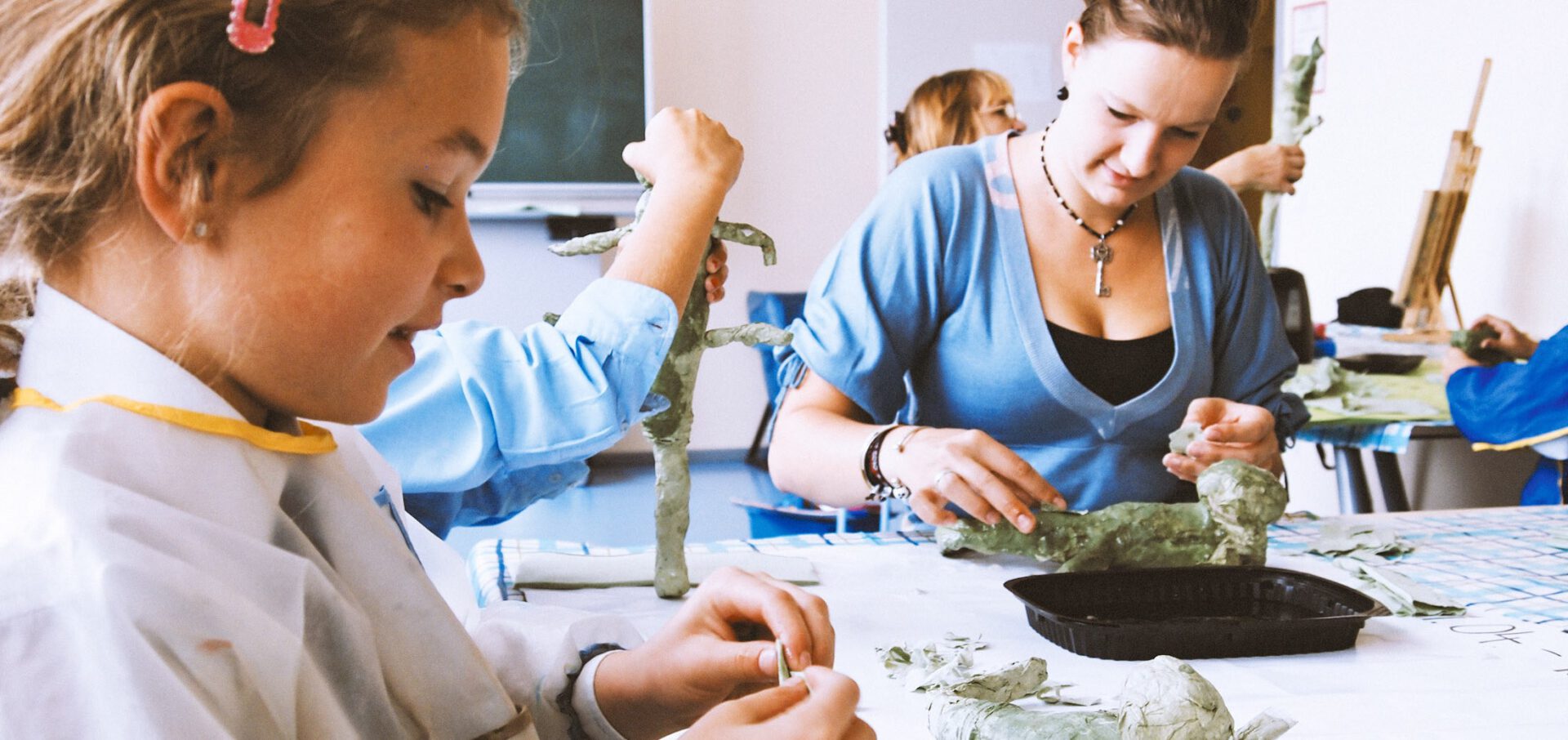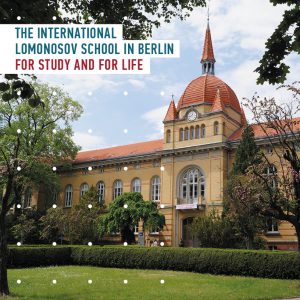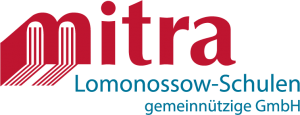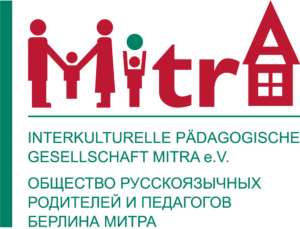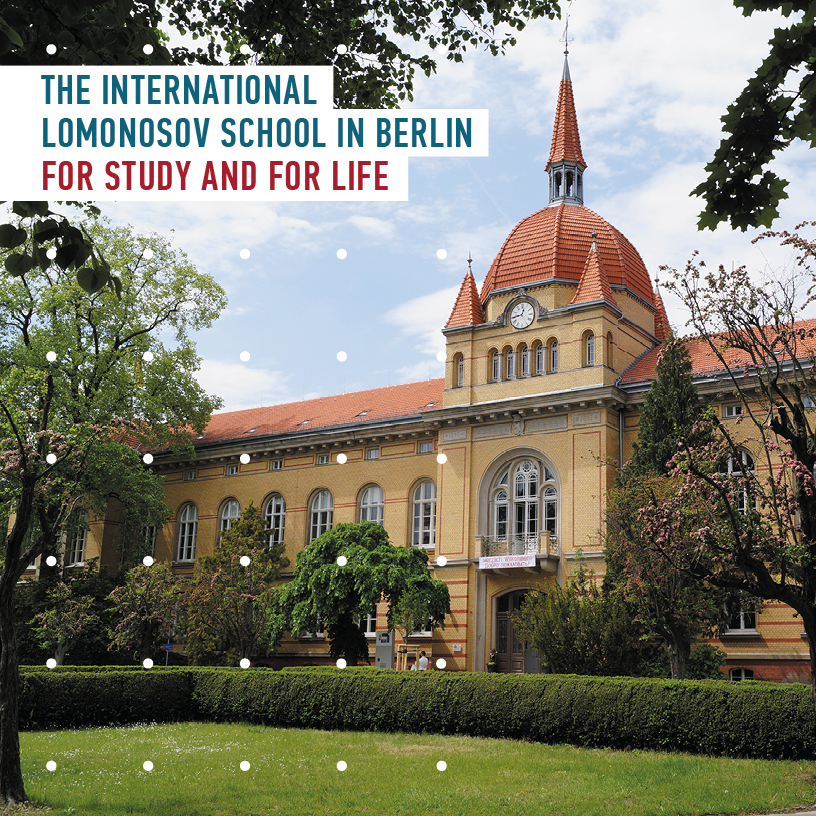CONCEPT
CONCEPT
TRADITIONS AND INNOVATIONS – TWO FACETS OF THE SAME COIN
The idea of an educational institution in Belin, that meets the demands and challenges of the modern world our children will live in, is in the core of the International Lomonosov schools’ pedagogical concept. This institution harmoniously combines teaching and extra-curricular creative work with children in order to discover and develop their talents, to stimulate and guide their interests in various fields.
It is of high importance for us to optimise traditional and innovative teaching concepts used in educational institutions around the globe. It is our academic ambition that the chosen pedagogical principles and methods are shared by our teachers, are well applied and further developed in their work. Our primary school aims at building up a solid foundation for a smooth transfer to a gymnasium or a secondary school, and then to the next stage of education in leading universities in Germany and worldwide.
MULTILINGUALISM – THE KEY TO THE WORLD
We believe that encouraging children to master their native language is vital for development of children’s apptitude for multiligualism. A vast amount of academic research proves that learning languages in a natural bilingual environment (German and Russian in our schools) is intellectually stimulating, and good for harmonious, comprehensive growing and mental well-being of children.
MULTILINGUALISM – THE KEY TO THE WORLD
We believe that encouraging children to master their native language is vital for development of children’s apptitude for multiligualism. A vast amount of academic research proves that learning languages in a natural bilingual environment (German and Russian in our schools) is intellectually stimulating, and good for harmonious, comprehensive growing and mental well-being of children.
DIALOGUE OF CULTURES
We see the educational and teaching processes in the International Lomonosov school as a dynamic mutually enriching dialogue. Our pupils are right in the center of this dialogue, they live and study in two clutures – German and Russian – at the same time. The school is committed to guiding children in the modern globalised world, and to providing children with all the necessary tools and knowledge to live in this world, including the skill to speak three languages (German, Russian and English) fluently.
Our teachers have different pedagogical backgrounds, and a complementary dialogue of different teaching approaches is also important for the school’s atmosphere. We have special requirements for and expectations from our teachers, not only are they native speakers, but also bearers of German and Russian traditions, manners and customs. We highly appreciate and support the dialogue between the school and the families of our pupils, which enriches the learning and education processes. Together we focus on bringing up children who understand and respect family traditions and values.
LOOKING AHEAD
We believe that to support children in mastering their mother tongue in a bilingual situation is vital for the development of a child’s multilingual skills. Multilingualism in the 21st century is no longer an elite privilige for the ‘select few’. It is becoming a life-norm and an implication for a successful career in the globalised world today.
Russian is the native language for more than 2 million people in Germany and around 200.000 in Berlin. Speaking a mother tongue fluently, reading and writing in one’s native language, appreciation of one’s belonging to the Russian culture is a good start for getting to know other languages and cultures.
German becomes the second native language for these children, therefore the school is working intensely to develop and improve German skills of our pupils.
LOOKING AHEAD
We believe that to support children in mastering their mother tongue in a bilingual situation is vital for the development of a child’s multilingual skills. Multilingualism in the 21st century is no longer an elite privilige for the ‘select few’. It is becoming a life-norm and an implication for a successful career in the globalised world today.
Russian is the native language for more than 2 million people in Germany and around 200.000 in Berlin. Speaking a mother tongue fluently, reading and writing in one’s native language, appreciation of one’s belonging to the Russian culture is a good start for getting to know other languages and cultures.
German becomes the second native language for these children, therefore the school is working intensely to develop and improve German skills of our pupils.
CREATIVITY
Nurturing children’s creativity is valued in our school. We develop our pupils’ esthetic perception of the world. Our profound experience with pre-school children proves the importance of an early esthetic development. Getting aquainted with outstanding pieces of literature, attending concerts and program events, going to cinema and theater, museums and galleries, taking part in cultural events in Berlin – all this is an indispensible part of education in the Lomonosov school. We are sure that this makes a profound impact on the children’s personalities and their intellectual development.
FORWARD TO NEW HORIZONS
The International Lomonosov schools are very well positioned in the educational landscape of the German capital thanks to our distinguished profile and the quality teaching. We actively participate in festivals, local sports and community activities, competitions and tests in Berlin and nationwide. We keep up an ongoing exchange of experience with bilingual schools in Berlin and Germany, as well as with partner schools from other countries where Russian is taught as a school subject, and with other educational institutions in Russia (schools, pedagogic universities, etc.)
FORWARD TO NEW HORIZONS
The International Lomonosov schools are very well positioned in the educational landscape of the German capital thanks to our distinguished profile and the quality teaching. We actively participate in festivals, local sports and community activities, competitions and tests in Berlin and nationwide. We keep up an ongoing exchange of experience with bilingual schools in Berlin and Germany, as well as with partner schools from other countries where Russian is taught as a school subject, and with other educational institutions in Russia (schools, pedagogic universities, etc.)
SCHOOL ORDER
School-life rules for our pupils.
GENERAL RULES
- I am friendly with my classmates, teachers and other people.
- I do not swear when talking to my classmates, teachers and other people.
- When anyone bullies me I turn to adults for support and do not start a fight.
- I am quiet and do not run in the halls and along the staircases.
- I do not leave the school building and area without a permission from an adult.
- I am always visible to my teacher when we take a trip.
CLASS RULES
- After the bell for the class I stand up at my desk to greet the teacher.
- School books, copybooks and writing utencils are in order on my desk, and the teacher can see that I am ready for the class.
- When the teacher speaks I listen carefully, never cut in or shaut from my seat.
- When I want to answer a question I raise my hand and wait to be asked.
- I listen closely to what the teacher says and what my classmates say.
- I follow the instructions given by a teacher.
- When I do not understand something, I raise my hand and ask a question.
- I do not eat, drink and go around the room during the class.
- I handle the school furniture and schoolbook carefully.
- I bring my desk back in order after each class.
SHORT BREAK RULES
- I get ready for the next class.
- I drink in case I am thirsty.
- I do to the toilet if I need to.
SCHOOLYARD RULES
- I follow the schoolyard rules.
- I do not leave the playground.
- I do not leave the schoolyard without a permission from an adult.
AFTER-SCHOOL DAYCARE RULES
- I take off my school uniform, put it in my locker and change when the classes are over.
- I wash my hands.
- I start eating my meals only after my classmates also get their meals and we say ‘enjoy your meal!’ to each other.
- I put the toys and games back to their places after playing.
- I do not hide in lockers and do not lock the toilet door from inside.
- I never leave the after-school daycare without a permission from an adult.
SCHOOL ORDER
School-life rules for our pupils.
GENERAL RULES
- I am friendly with my classmates, teachers and other people.
- I do not swear when talking to my classmates, teachers and other people.
- When anyone bullies me I turn to adults for support and do not start a fight.
- I am quiet and do not run in the halls and along the staircases.
- I do not leave the school building and area without a permission from an adult.
- I am always visible to my teacher when we take a trip.
CLASS RULES
- After the bell for the class I stand up at my desk to greet the teacher.
- School books, copybooks and writing utencils are in order on my desk, and the teacher can see that I am ready for the class.
- When the teacher speaks I listen carefully, never cut in or shaut from my seat.
- When I want to answer a question I raise my hand and wait to be asked.
- I listen closely to what the teacher says and what my classmates say.
- I follow the instructions given by a teacher.
- When I do not understand something, I raise my hand and ask a question.
- I do not eat, drink and go around the room during the class.
- I handle the school furniture and schoolbook carefully.
- I bring my desk back in order after each class.
SHORT BREAK RULES
- I get ready for the next class.
- I drink in case I am thirsty.
- I do to the toilet if I need to.
SCHOOLYARD RULES
- I follow the schoolyard rules.
- I do not leave the playground.
- I do not leave the schoolyard without a permission from an adult.
AFTER-SCHOOL DAYCARE RULES
- I take off my school uniform, put it in my locker and change when the classes are over.
- I wash my hands.
- I start eating my meals only after my classmates also get their meals and we say ‘enjoy your meal!’ to each other.
- I put the toys and games back to their places after playing.
- I do not hide in lockers and do not lock the toilet door from inside.
- I never leave the after-school daycare without a permission from an adult.
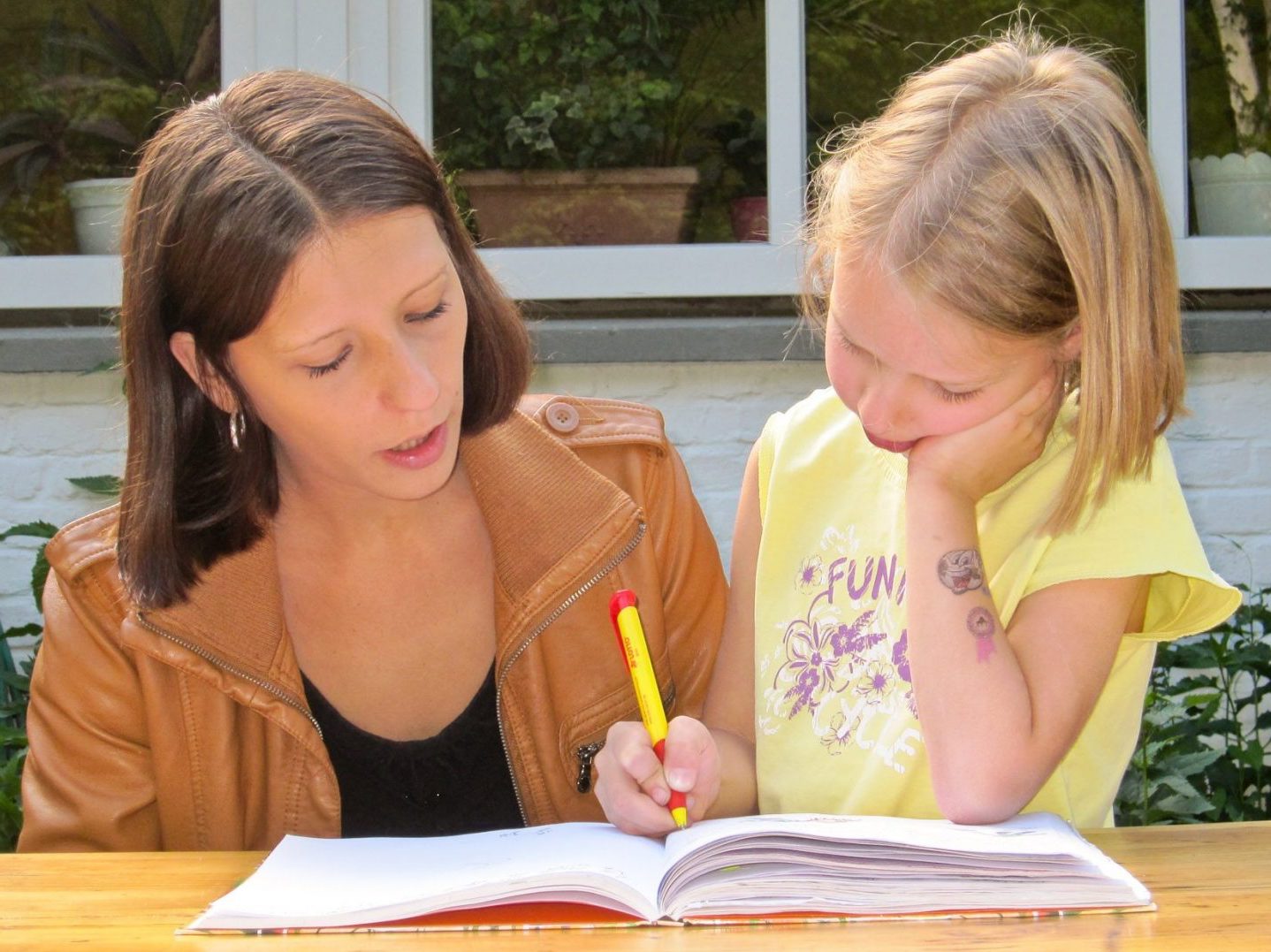
WORK WITH US
• You are a dedicated, creative and reliable team-player?
• You enjoy working with children?
• You are ready to share your knowledge and skills?
• German is your native language or you speak German like a native-speaker, and you are open to other cultures?
• You have passed the state examination 1 and/or 2?
• You are eager to teach result-oriented and inquisitive children in small learning groups?
Then you are the rights for us!
The fast growing International Lomonosov schools in Berlin are hiring primary school teachers and subject high-school teachers with teaching qualifications. Contact: Dr. Alexander Ott, 030-20 45 21 23, info@mitra-schulen.de

WORK WITH US
• You are a dedicated, creative and reliable team-player?
• You enjoy working with children?
• You are ready to share your knowledge and skills?
• German is your native language or you speak German like a native-speaker, and you are open to other cultures?
• You have passed the state examination 1 and/or 2?
• You are eager to teach result-oriented and inquisitive children in small learning groups?
Then you are the rights for us!
The fast growing International Lomonosov schools in Berlin are hiring primary school teachers and subject high-school teachers with teaching qualifications. Contact: Dr. Alexander Ott, 030-20 45 21 23, info@mitra-schulen.de
ABOUT THE FOUNDER AND HEAD ORGANISATION
The association MITRA Lomonossow-Schulen gGmbH – is a non-profit organisation founded by “MITRA intercultural pedagogic association” in 2014. The latter was established in 1993 with the aim to provide pedagogical support to migrant and expat families with children living currently in Berlin and to contribute to their integration into the German society. Another mission of MITRA is to contribute to a peaceful and tolerant coexistence of different cultures in Germany.
We are working towards that the children of immigrant families in Berlin and in Germany enter their new life with confidence, equal rights and equal opportunities from the start. We help parents and other parties involved in bringing up and teaching children to better carry out their parental duties.
“MITRA intercultural pedagogic association” offers families of different national backgrounds with children living in Berlin a variety of services that meet their needs and improve their life-quality.
The non-profit organisation ‘MITRA bilingual kindergartens’ runs 11 bilingual kindergartens in Berlin, Leipzig, Colonge and Potsdam with more than 900 children. Above that MITRA supports children and teenagers in their integration into the Germal school system, backs up families in their adaptation to their new home, and regularly holds seminars for social workers, journalists and governmental workers to introduce migrant issues to them.
MITRA’s work has been appreciated by the Berlin Senat since 1995 and has been financed by it. MITRA is an interregional organiser of work with children and youths since 2000, and also a member of the German Union of Public Welfare in Berlin and Brandenburg (since 2005), in Saxony (since 2006) and in North Rhine-Westphalia (since 2009).
ABOUT THE FOUNDER AND HEAD ORGANISATION
The association MITRA Lomonossow-Schulen gGmbH – is a non-profit organisation founded by “MITRA intercultural pedagogic association” in 2014. The latter was established in 1993 with the aim to provide pedagogical support to migrant and expat families with children living currently in Berlin and to contribute to their integration into the German society. Another mission of MITRA is to contribute to a peaceful and tolerant coexistence of different cultures in Germany.
We are working towards that the children of immigrant families in Berlin and in Germany enter their new life with confidence, equal rights and equal opportunities from the start. We help parents and other parties involved in bringing up and teaching children to better carry out their parental duties.
“MITRA intercultural pedagogic association” offers families of different national backgrounds with children living in Berlin a variety of services that meet their needs and improve their life-quality.
The non-profit organisation ‘MITRA bilingual kindergartens’ runs 11 bilingual kindergartens in Berlin, Leipzig, Colonge and Potsdam with more than 900 children. Above that MITRA supports children and teenagers in their integration into the Germal school system, backs up families in their adaptation to their new home, and regularly holds seminars for social workers, journalists and governmental workers to introduce migrant issues to them.
MITRA’s work has been appreciated by the Berlin Senat since 1995 and has been financed by it. MITRA is an interregional organiser of work with children and youths since 2000, and also a member of the German Union of Public Welfare in Berlin and Brandenburg (since 2005), in Saxony (since 2006) and in North Rhine-Westphalia (since 2009).

